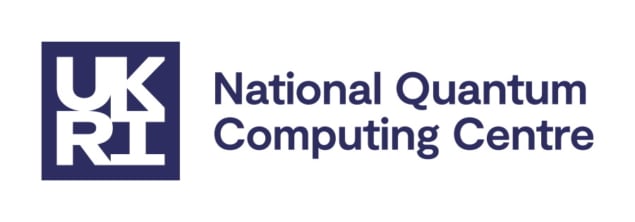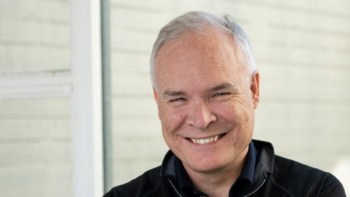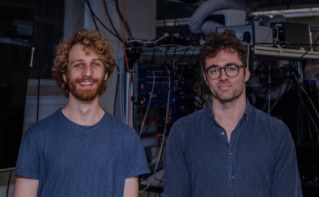The UK’s second quantum hackathon challenged ten teams of early-career researchers, industry mentors and hardware specialists to create quantum solutions to real-world problems in just two days

The calm and hushed corridors of the University of Birmingham’s Teaching and Learning Building offered little indication of the intense efforts being made by the ten teams taking part in the second quantum hackathon to be organized by the UK’s National Quantum Computing Centre (NQCC). They had just two days to devise quantum solutions to real-world problems set by end-users ranging from the National Health Service (NHS) and the National Grid to Rolls Royce and financial specialists Nomura, and to test their approaches on hardware platforms from different technology providers.
“It has been a great experience that has really allowed us to take a deep dive into a use case that is relevant for many of our customers,” said Salvatore Sinno, an R&D specialist at digital solutions provider Unisys. “Our team has been exceptional, and delivering a solution within just two days shows that anything is possible when you have the right skills and the right interaction between business, research, and hardware specialists.”
Compared to last year’s event, which was the first of its type in the UK, the 2023 edition saw a significant uplift in participation, particularly from the commercial sector. “We were excited last year about the level of enthusiasm and engagement throughout the hackathon,” said Michael Cuthbert, director of the NQCC. “This year we have more industry partners who are exposing our hackers to a broader range of use cases, plus there are more companies providing access to their hardware platforms compared to last year.”
In some cases, the hackers were provided with exclusive access to hardware platforms that are not publicly available, allowing them to gain experience of using different machines and modalities. “That’s a measure of the maturing technology landscape in quantum computing,” continued Cuthbert. “It’s exciting to be able to explore the differences and similarities between the platforms, and to see what sort of performance can be achieved across the range of technologies we have available.”
Quantum computing is quite a new area for us, and we wanted to gain an understanding of its current capabilities and limitations
Fazal Chaudry, UKAEA
One of the primary objectives for the event was to build awareness of the current capabilities of quantum computing among different organizations and businesses, and to provide participants with hands-on experience of writing quantum algorithms and running them on a real quantum computer. The hackers were mostly PhD students and early-career scientists with varying levels of experience with quantum computing, while each team also included a technical specialist from one of the hardware providers plus an industry mentor to explain and contextualize the use case.

While some of the industry partners had already started to develop their own expertise in quantum computing, for others the hackathon offered a valuable first-look at emerging quantum algorithms and hardware. “Quantum computing is quite a new area for us, and we wanted to gain an understanding of its current capabilities and limitations,” said Fazal Chaudry, a principal systems engineer at the UK Atomic Energy Authority (UKAEA). “We created a use case for the team based on a problem in nuclear fusion that we would normally study using classical simulation, and we wanted to see if we could tackle the same problem with a quantum computer.”
Chaudry’s conclusion, at least part way through the event, was that quantum computers are not quite there yet. “The team have developed some algorithms that in principle could solve the problem, but the hardware is still not yet mature enough to offer us a performance advantage,” he said. “But it’s a useful starting point, and it offers a way for us to understand what we need to do.”
One major learning point for Chaudry was that quantum computers require a different way of approaching the mathematical problem. “Rather than trying to translate an existing classical problem to a quantum computer, we need to rethink the way we encode information to achieve a speed up,” he continued. “We might need to represent the problem in a vastly different way, but in that case we still need a metric to compare the performance and test whether a quantum computer can offer a genuine advantage.”
We carefully balanced the teams to combine different areas of expertise and varying skill levels in quantum computing
Daisy Shearer, NQCC
For the hackers, meanwhile, the event offered an opportunity to enhance their existing skills in quantum computing, learn about potential use cases in different industry sectors, and to see how the technology might be exploited in other research fields. “We carefully balanced the teams to combine different areas of expertise and varying skill levels in quantum computing,” explained the NQCC’s Daisy Shearer, who led this year’s event. “We have people from engineering and chemistry backgrounds who have been sharing their domain knowledge, while people with more experience of quantum computing have been exposed to different industry problems and hardware technologies.”
For PhD student Annie Paine, who has already been working with quantum algorithms in her research project, the hackathon offered the chance to enrich her knowledge of different coding techniques. “I’ve wanted to learn about a technique called equivariant embedding for a while, but it hasn’t been the top priority during my PhD,” she explained. “Having two days where I can really focus on it has been really good, plus I have seen how this particular method can be applied to the problem of DNA sequencing.”
Fergus Hayes, meanwhile, a post-doc researcher who has been investigating how quantum computing might be used to detect gravitational waves in large astronomical datasets, was excited to explore the range of strategies that can be deployed to tackle a particular problem. “We have been working with the NHS on a travelling salesman problem where we need to find the optimal path between different healthcare centres,” he explained. “I’ve already been exposed to new ideas and new tools that I might be able to use in my research, plus I’m hoping to get an even wider picture when we hear about what the other teams have been doing.”

Both Paine and Hayes valued the opportunity to share experiences with other people working in the field, and to find out how similar quantum tools and techniques could be applied in different practical scenarios. Indeed, many of the use cases involved some form of optimization, which is a challenging mathematical problem even for the most powerful classical computers. “We believe that quantum computing can already offer some benefits for these large optimization problems,” said Sinno, whose use case centred around the logistical puzzle of routing cargo vehicles to multiple destinations within specific time windows. “This use case is very close to our hearts, as it is the type of problem that our customers often present us with.”
Overcoming limitations
For Sinno, working alongside the students and technology providers offered new insights into his particular use case. “We found a way to overcome the current limitations of the hardware, but it showed us that quantum computing is still not yet mature enough to tackle every type of problem,” he said. “You really need to bring everyone together – the business, the research community, and the technology providers – to identify the right use cases and translate them into problems that can benefit from today’s quantum computers.”
Chaudry agrees, pointing out that the limited scale of current hardware platforms is not the only hurdle that is preventing more widespread adoption of the technology. “When we programme classical computers we have no knowledge of what’s happening inside, but we found that you really need to understand the inner workings of the quantum hardware to make the code work,” he says. “We need higher level algorithms to allow end users like us to move away from that machine-based thinking and focus more on solving our particular problem.”
The hackathon has emphasized to me that we also need to focus on the usability of our hardware
Dave Roberts, ORCA Computing
That view was echoed by Dave Roberts from ORCA Computing, which had provided the hackers with private access to its photonics platform during the event. “From a hardware point of view the constant driving factor is to make our devices more powerful, but the hackathon has emphasized to me that we also need to focus on the usability of our hardware,” he said. “To bring in end users who might not play with quantum computers every day, we need to provide more powerful tools in the software stack to ease the transition from real-world problems into code that can run on a quantum computer.”
Such shared discovery and learning among key stakeholders in the UK’s quantum ecosystem is exactly the sort of outcome that the NQCC was hoping to achieve from the event. “We wanted our teams to explore the types of problems that can be tackled by quantum computers, and to find out whether the technology offers the scale, performance and maturity to approach the use cases provided by our industry partners,” said Cuthbert. “From the innovative solutions they presented at the end of the hackathon, it’s clear to me that all of our participants have learnt something that they can take forward beyond these two days.”




